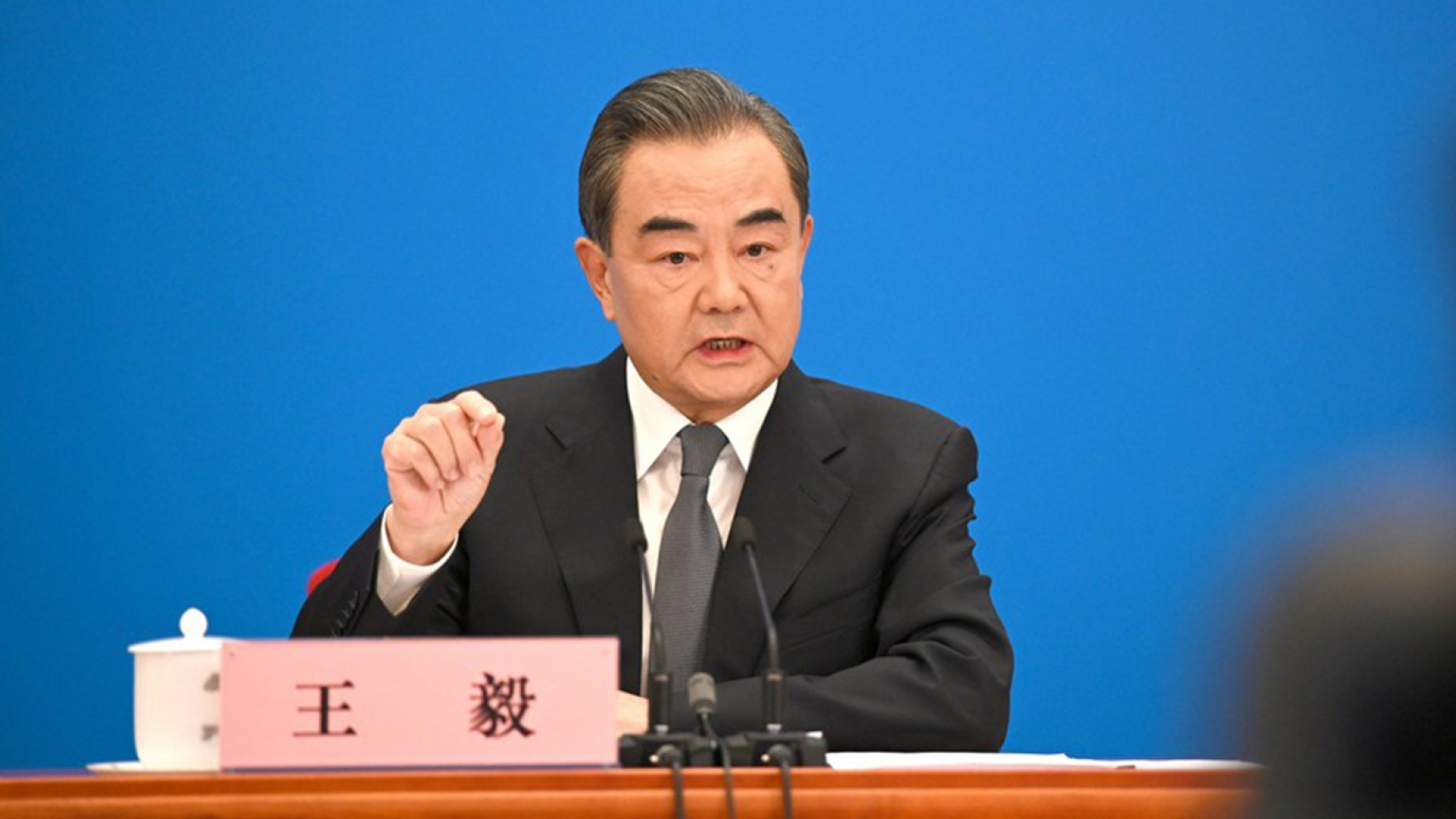Beijing Swipes at US ‘Pseudo-Multilateralism’ as South China Sea Code of Conduct Edges Closer

© Xinhua
Subscribe
As the US sends one top administration official after another to Southeast Asia in an attempt to woo regional nations into more pro-US stances, China’s top diplomat has sharply criticized Washington for its “external interference.” Meanwhile, a regional pact aimed at defusing tensions took a major leap forward.
Chinese Foreign Minister Wang Yi came out swinging at the annual East Asia Summit on Wednesday, accusing the United States of trying to weaponize regional powers as part of its strategic push against China.
“Individual countries such as the US are trying to take advantage of this multilateral platform and blatantly meddling in China’s domestic affairs,” Wang said, according to the South China Morning Post.
Wang hailed multilateralism as the “correct path” for addressing complex issues around the globe, but warned attending foreign ministers they should “be wary of all kinds of pseudo-multilateralism and, in particular, resist the use of multilateralism to foment bloc confrontation.”
The US has no territory and makes no claim to territory in the South China Sea; its closest spot is the island of Guam, a US colony seized from Spain in 1898 that is more than 1,600 miles east of the waterway.
His words come after US Defense Secretary Lloyd Austin visited several nations last week, including Singapore, Vietnam and the Philippines, in each case attempting to forge new defense ties and shore up their relationships with the US.
Meanwhile, US Vice President Kamala Harris is also preparing to visit Singapore and Vietnam later this month, where she will “ underscore that there should be free passage for trade throughout the South China Sea, and no single country should disrespect the right of others,” a White House official told Reuters on Tuesday.
“We do not want to see any country dominate that region or take advantage of the power situation to compromise the sovereignty of others," the official added.
Harris’ office further noted that the core of her message would be that “America is back.” However, with the US’ history of waging major wars across the region in defense of its interests, including in Vietnam, Cambodia, Laos and the Philippines, some wondered if the remark wasn’t a veiled threat.
https://t.co/6c3Ey4Lz03 pic.twitter.com/2YxRCCafdG
— Alan MacLeod (@AlanRMacLeod) August 4, 2021
Wang invoked the memory of those wars, which killed millions in the late 19th and 20th centuries, when he criticized the US for its constant meddling in Chinese internal affairs, including claiming Beijing is guilty of genocide in Xinjiang, is crushing freedoms in Hong Kong, and for the US’ backing of the government in Taiwan, which Beijing sees as a province in rebellion.
“If you want to talk about genocide, the real genocide was the massacre of Indians in the United States. It was a real crime against humanity when the United States unleashed wars everywhere, killing and injuring a large number of innocent civilians,” Wang said.
“How dare you express your so-called concern now? What is your concern? Do they want to bring Hong Kong back to chaos and turmoil? Do they want the ‘Hong Kong independence’ forces to take to the streets again? I must tell you clearly that you should give up your hope, for it is impossible to wait for that day.”
Progress Made on Code of Conduct
Just a day prior, China and members of the Association of Southeast Asian Nations (ASEAN) checked off an important accomplishment in multilateralism: finalizing a section of the Code of Conduct for the South China Sea.
The progress in negotiations - which have been going on for more than 20 years - was reported in a Chinese Foreign Ministry readout of the ASEAN virtual summit on Tuesday. The summary said the resumed negotiation “proves that as long as we maintain the common political will to advance the consultation, no matter the pandemic or external interference, no difficulty can stop us.”
Pressure on ASEAN and China, which isn’t a member of the bloc, picked up this past spring after Beijing and Manila exchanged some harsh words amid tensions created by Chinese fishing boats anchoring near a reef in the Spratly Islands claimed by the Philippines. China has made wide claims of sovereignty over the Spratlys and several other island chains, but those claims overlap with several other nations’ claims, including the Philippines, but also Brunei, Malaysia, Vietnam, and Taiwan, as well.
Once finalized, the document will provide a framework based on the United Nations Convention on the Law of the Sea through which the regional powers can settle their disputes in the waterway, which include fishing and drilling rights. The US has cast doubts on the code of conduct, saying it fears that China is pushing the negotiations in its favor and presenting US military might as all that stands in the way of a total Chinese takeover.
“[W]e must be vigilant that individual extra-regional countries are openly intervening in territorial and maritime disputes in the region, sowing discord between China and ASEAN countries, sending a large number of advanced ships and aircraft to provoke around, and have become the biggest spoilers of peace and stability in the South China Sea,” Wang said at the summit.
“The South China Sea is not, and should not become, a gladiatorial arena for great power games, and we cannot allow them to undermine the good situation of peace and stability in the region,” he added.



